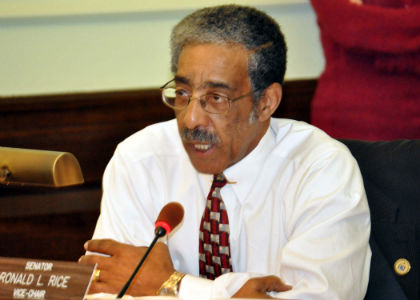
TRENTON – Legislation sponsored by Senator Ronald L. Rice that would establish a two-generational school readiness and workforce development pilot program for low-income households cleared the Senate Higher Education Committee today.
“Breaking families out of the cycle of poverty cannot be done with addressing the needs of just one generation; it has to be done with multiple generations. We need to assist the low-income households in New Jersey in order to give them an opportunity to thrive in their communities,” said Senator Rice (D-Essex). “This bill will act as a building block in which services will be delivered to those communities most vulnerable throughout the state.”
The bill, S-371, would establish a five-year two-generational school readiness and workforce development pilot program within the Department of Education (DOE). The purpose of the pilot program would be to foster family economic self-sufficiency in low-income households by delivering academic and job readiness support services across two generations within the same household. Under the bill, the DOE commissioner would be charged with designating qualifying municipalities that have a poverty rate that is at least twice the statewide average poverty rate.
The pilot program would provide services to designated municipalities in the form of early learning programs, adult education, child care, housing, job training, transportation, financial literacy and other related support services such as health and mental health services.
The program would create a workforce liaison position that would be charged to gauge the needs of employers and households in each community and help coordinate the two-generational program to meet the needs of these employers and households. It would also facilitate the creation of a long-term plan that would be adopted and replicated as a model for the delivery of these services on a statewide basis.
The bill was released from committee by a vote of 5-0, and next heads to the Senate Budget and Appropriations committee for further consideration.

